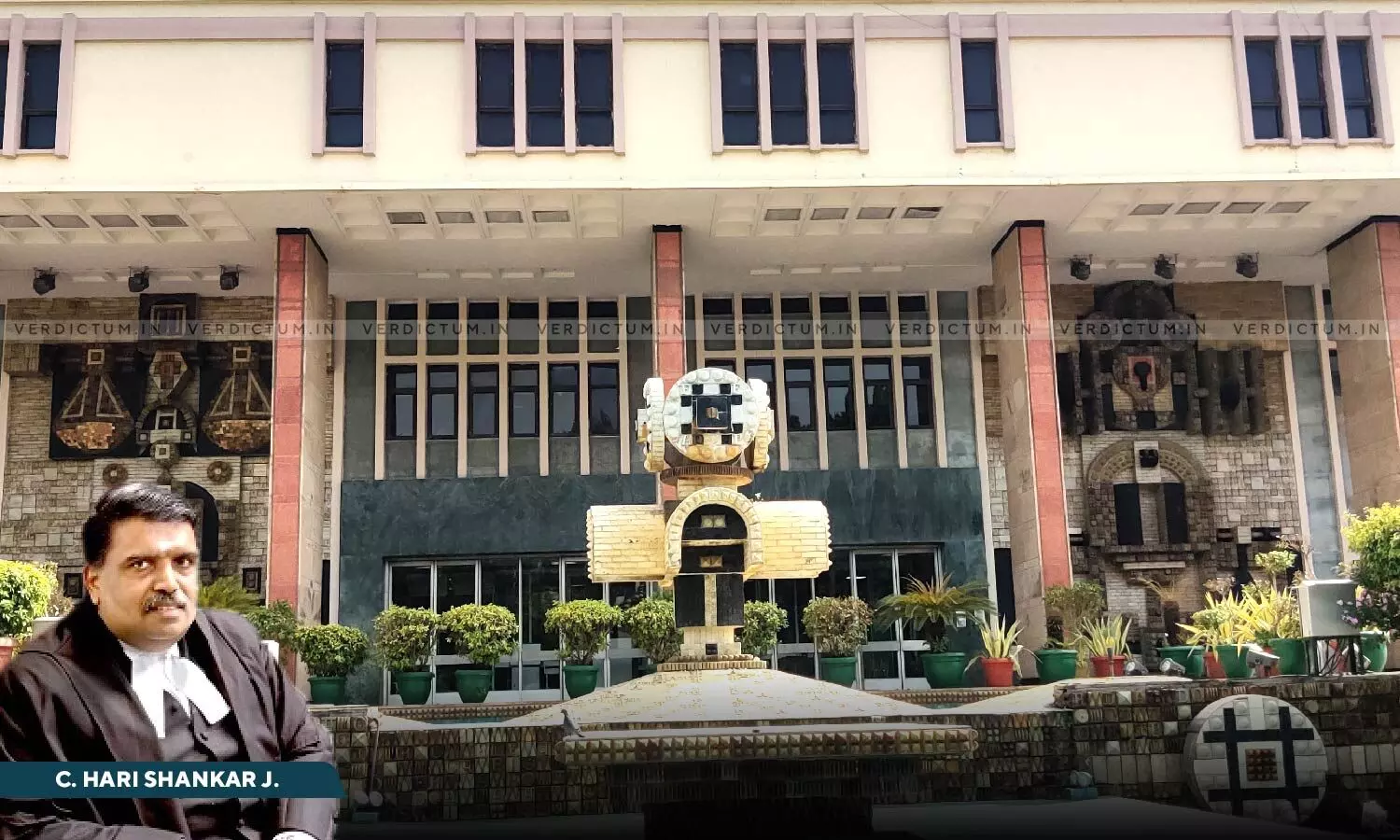
"Not Open To Court To Perform Interpretative Callisthenics" - Delhi HC Holds Writs Against IPAB Orders Passed Before Abolition Can Be Heard By Single Judge Of High Court
 |
|A Delhi High Court Bench of Justice C Hari Shankar has observed that writs against orders passed by the Intellectual Property Appellate Board prior to its abolition can be heard and decided by the Single Judge of the High Court.
In that vein, the Court said that, "To my mind, the statutory position is clear as crystal, and it is not open to this Court, by resort to interpretative calisthenics, to deviate from it. This Court can only abide by the statutory dictate. It cannot legislate."
Counsel N Mahabir, among others, appeared for the petitioner, while CGSC Harish Vaidyanathan Shankar, among others, appeared for the State.
In this case, the Court was dealing with the question of whether writ petitions challenging orders issued by the Intellectual Property Appellate Board (IPAB) should be heard by a Single Bench or a Division Bench of the Court, following the IPAB's abolition in 2021.
Rejecting the objection that the writ petitions ought not to be heard by the Singl Judge, the Court made the following observations:
(i) Rule 4 of the IPD Rules clearly requires every “IPR subject matter or case or proceeding or dispute” to be decided by a Single Judge.
(ii) The decision of the IPAB constitutes “IPR Subject Matter” within the meaning of Rule 2(i) of the IPD Rules.
(iii) A writ petition which challenges the decision of the IPAB is, therefore, within the ambit of the expression “original proceedings, appellate or other proceedings relating to IPR subject matter” and is, therefore, an “IPR subject matter or case or proceeding or dispute” as defined in Rule 2(l) of the IPD Rules.
(iv) This actually concludes the controversy. Rule 4, read with Rule 2(i) and 2(l) of the IPD Rules require writ petitions, challenging orders passed by the IPAB, to be decided by Single Judges. No real occasion arises to refer to the “also includes” part of Rule 2(l), or clauses (i) to (iv) which follow.
(v) Nonetheless, even if clause (iii) were to apply, writ petitions, arising out of IPR subject matters are specifically included, by the said clause (iii), in the category of “IPR subject matters or cases or proceedings or disputes”. Clause (iii) of Rule 2(l), read with Rule 4, therefore, reinforces the position that writ petitions, directed against orders passed by the IPAB prior to its abolition, have to be decided by Single Judges.
(vi) As there is no provision in the IPD Rules, which requires such writ petitions to be dealt with by Division Benches, the exception in Rule 2(l)(iii) does not alter this position.
(vii) Nonetheless, even if one were to take this exception into consideration and, based on Rule 8(iii), take the DHC rules also into account, writ petitions against orders passed by the IPAB would still have to be heard by Single Judges, as they fall within Rule 1(xviii)(a) in Part B of Chapter 3 of the DHC Rules.
(viii) Rule 4 of Chapter 3 of the DHC Rules would not, therefore, apply.
(ix) The position being thus clear from the Rules, any hesitation or refusal, by the Single Judge, to hear these petitions, short of recusal, would amount to abdication of the judicial function vested in him. Recourse to the history of the IPD Rules, or the evolution of the statute from time to time, or the creation and abolition of the IPAB, as grounds not to exercise the jurisdiction vested, by the IPD Rules and even by the DHC Rules, in the Single Judge would, in my opinion, be completely unjustified.
Cause Title: Ayur United Care LLP vs Union of India & Anr.
Click here to read/download the Judgment